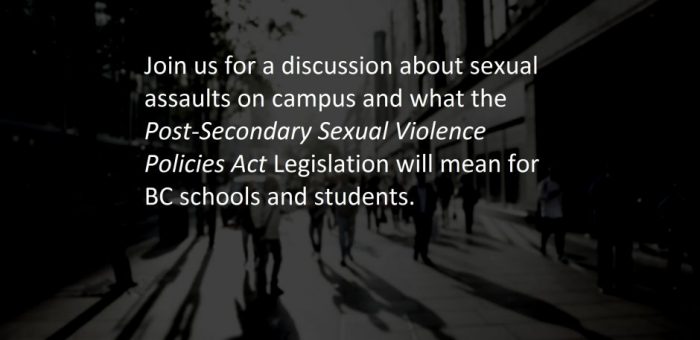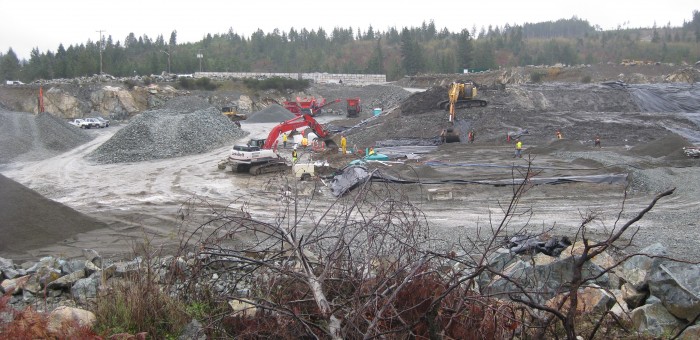Justice
Bill 24: Profits of Criminal Notoriety Act
Today in the legislature we debated Bill 24 – 2016: Profits of Criminal Notoriety Act at second reading. As I noted earlier, this Bill mirrors my private members Bill introduced on February 25 entitled Bill M204 — 2016: Profits of Criminal Notoriety Act. This represents the third of my private members bills that has been adopted by government this session. Below are the text and video of my speech supporting this bill.
Text of Speech
Near the end of February, British Columbia faced an issue similar to what other provinces have faced in the past. Robert Pickton, one of Canada’s most prolific serial killers, published a book entitled Pickton: In His Own Words.
This book was available on Amazon for a short while before it was taken down. As one expected, the situation outraged many people across the province and brought to light a gap in our current legal system. Prior to the introduction of this legislation before us, we had nothing in our province that prevented convicted criminals from financially profiting through the recounting of their crimes. That’s why my office and I delved deeper into this issue and identified a number of provinces that had already introduced legislation to address this issue.
On February 25, 2016, I introduced Bill M204 — Profits of Criminal Notoriety Act, 2016, which was based on similar legislation in Nova Scotia. I am strongly in support of the intentions of this legislation and look forward to its passage in the Legislature.
However, please let me take a few minutes to recount the other side of what we uncovered as we looked into this issue. It’s my hope that by doing so, I can contribute positively to making a strong piece of legislation that is applied appropriately to specific situations, such as the case with Robert Pickton.
Now, Ontario was the first to enact legislation that prevented criminals from profiting from the notoriety of their crimes through recounting them, typically through publishing books that retold their crimes. Ontario passed this legislation in 2002. Manitoba followed in 2004, Alberta in 2005, Nova Scotia in 2006 and Saskatchewan in 2009.
I think it’s important to note that, as far as I can tell, Canada’s Parliament has refused to bring in similar legislation for fears of impairment of the free speech of Canadians. This concern arose in 1996 when the Senate rejected Bill C-205, which would see amendments made to the Copyright Act and the Criminal Code in order to create a federal law. While the bill passed through the House of Commons, the Senate received legal opinions that cautioned that the legislation would cause an infringement to their freedom of expression guarantee in the Charter of Rights and Freedoms.
It is here that I’d like to highlight the work of Joanne Colledge, executive officer to the Chief Justice of Saskatchewan and the provincial judicial council, and John Whyte, an emeritus professor in the Department of Politics and International Studies at the University of Regina. Their paper entitled Capturing Proceeds from Criminal Notoriety: A Case Study was published in 2012 in issue 2 of volume 17 of the journal Review of Constitutional Studies, pages 41 to 72. You can get the link on my website after today.
This paper provides an excellent overview of one of the most important debates we must undertake in advancing this legislation. It further shines a light on a potential pitfall for governments who seek to take this law too far or to prosecute a specific individual instead of an issue of public policy. The work by Colledge and Whyte explores the series of events that led to Saskatchewan’s bill being introduced in 2009 and their concerns that it represented a possible Charter violation. This was due to the way in which the bill seemed to target an individual specifically rather than a public policy in general.
The individual in question, Mr. Colin Thatcher, was in the press at the time in discussions about his attempt to publish a book recounting some elements surrounding his arrest and conviction. Please let me quote directly from the work of Colledge and Whyte:
“While certainly not unique to Saskatchewan, the enactment of the Notoriety Act caused concern precisely because it was done so quickly, without due consideration for potential constitutional considerations; because it was targeted specifically to ensure that Thatcher’s book would be captured by the acts provision, including expressly making the Notoriety Act’s application retro-active; and because of all this occurred before anyone in the government or elsewhere had seen the book’s content. That the Notoriety Act may have been targeted to capture Thatcher’s book seems especially significant since, written into the Notoriety Act are two sections that were not applied by the Government. These two sections allow exceptions to the Act’s application when the content falls within certain statutory definitions.
What ultimately came to issue here was the language used by the Saskatchewan legislature. They created: “definitional layers and an indeterminate scope that served to frustrate a clear understanding of which writings will actually fall within the Notoriety Act’s expropriating provisions.” That was a direct quote from the same paper.
Now I know that the legislature will have ample opportunity to ensure that the language chosen in the government’s bill, the Profits of Criminal Notoriety Act, does not create a similar issue. However, I felt it was important to take an opportunity at second reading to ensure that the principle in question was expressed.
This bill and the similar legislation I introduced followed a specific case where an individual whose actions horrified British Columbians attempted to publish an account of these crimes for profit. While I’m convinced that we must address a glaring legislative gap, and I further stand behind the principle that this legislation advances, we must ensure that we are setting up a legislative framework that works to create a fundamental tenet: those who commit criminal acts should not profit from the direct retelling of their crimes. We must ensure that this is restricted to instances where the purpose of the individual was exactly this.
The concerns expressed in the Colledge and Whyte paper are that the individual in Saskatchewan, Colin Thatcher, who I mentioned earlier, was not attempting to publish a recounting of his crimes, but rather “to examine the police investigation and prosecution, and to analyze critically both the evidence and the theory on which his conviction was based.”
The central tenet expressed in their critique seems well founded. We must not allow this legislation to become a tool that represses legitimate forms of free speech. Whether or not a government likes something that is published should not be the determining factor, rather whether the text meets the specific requirements of the legislation before us should be.
This is why the words matter. Words matter. They must be able to diverge unpopular opinions from those where an individual seeks to recount their crimes for profit.
I look forward to exploring this in more detail when the minister brings this bill to committee stage and hope to get his perspective on where, in this balancing act, this particular piece of legislation lands. I commend the government for bringing the legislation forward. It’s timely, needed, and I thank you for your attention.
Video of Speech
Government following BC Greens lead with Criminal Notoriety Bill
Media Release: April 25, 2016
Andrew Weaver – Government following BC Greens lead with Criminal Notoriety Bill
For Immediate Release
Victoria B.C. – Today the government introduced Bill 24 the Criminal Notoriety Act, which mirrors a Bill introduced earlier in the session by Andrew Weaver, Leader of the B.C. Green Party and MLA for Oak Bay-Gordon Head.
“I was pleasantly surprised this morning when the Minister for Public Safety stood up and introduced essentially the same the Bill that I introduced in February,” says Weaver. “It’s important that we close this gap in legislation and make sure criminals cannot profit from recounting their crimes.”
Andrew Weaver introduced his Private Member’s Bill intituled Profits of Criminal Notoriety Act on Feb. 25. The new bill introduced today is intituled Bill 24 – Profits of Criminal Notoriety Act.
“This is an example of good public policy, it’s common-sense legislation that British Columbians want no matter their political preference, which is why I introduced it in the first place,” says Weaver. “British Columbians want to see politicians working together for the common interest.”
“I hope the government also takes a close look at the legislation brought forward by MLA Spencer Chandra Herbert which brings clear language into the Human Rights Code protecting and celebrating transgender individuals. This is another example of something we can, and should, all stand together to support.”
Media Contact
Mat Wright – Press Secretary Andrew Weaver MLA
1 250 216 3382
mat.wright@leg.bc.ca
MLA Town Hall: Sexual Violence on BC Campuses
MLA Town Hall: Sexual Violence on BC Campuses
On Wednesday, May 4th 2016 we will be hosting an MLA Town Hall on sexualized violence on BC campuses with a panel of frontline speakers and experts. The event will start with a talk from MLA Andrew Weaver about his legislative efforts to address this issue, as well as an update on the progress of his bill, the Post-Secondary Sexual Violence Policies Act. Following Dr. Weaver, each panelist will speak about their connection to the issue as well as their ongoing efforts to prevent and address instances of sexual assault.
Panelist will include:
- The Victoria Sexual Assault Centre
- The UVic Student Society
- Trauma Therapist Barbara Allyn
- TRU Student Jean Strong
Plenty of time will be reserved for questions, comments, and discussion about how we can tackle this incredibly important issue and what the legislation will mean for BC post-secondary schools and students. This is a topic that effects everyone in our community, and everyone is welcome to attend.
The event will take place from 7:00pm to 9:00pm at the University of Victoria, Student Union Building (3800 Finnerty Road), in the Vertigo Room. Doors will open at 6:30pm and seating will be on a first-come, first-serve basis.
Please feel free to circulate this invitation to other people or groups who may also have an interest in joining us. And for more information, don’t hesitate to contact our office by email: andrew.weaver.mla@leg.bc.ca by phone: 250 – 472 – 8528 or on facebook.
Reacting to Woodfibre LNG Approval and Pacific NorthWest LNG
Media Statement: Monday March 21, 2016
B.C. Green Party Leader Andrew Weaver Reacts to Woodfibre LNG Approval and PNW LNG
For immediate release
VICTORIA B.C. – Andrew Weaver, Leader of the B.C. Green Party and MLA for Oak Bay–Gordon Head, has issued the following statement in response to the federal government’s request for more information from PNW LNG and the approval of the environmental assessment for Woodfibre LNG:
On Pacific Northwest LNG:
“I am deeply alarmed at BC’s Minister of Natural Gas’s comments that a properly functioning environmental assessment process constitutes a ‘needless delay’,” said Andrew Weaver. “The BC Liberal’s reckless BC LNG economics and environment of ‘getting to yes’ no matter what, calls into question whether the environmental assessment process under the BC Liberals is indeed credible.”
“There are a growing number of examples where an environmental process seems to be more about ticking boxes than about reviewing impacts. A process whose purpose is to evaluate whether a project should proceed will struggle to remain credible when the government is frantic to say yes to everything.”
“An LNG export industry is a financially foolish venture for a Province like B.C. to be pursuing, especially with other options readily available. The BC Liberals refuse to recognize that the future of the BC economy is not rooted in the energy projects of the past, but in environmental tourism, clean-tech and knowledge-tech industries.”
On Woodfibre LNG:
“It is incredibly unfortunate that the Woodfibre LNG proposal was examined through the lens of Harper’s Canadian Environmental Assessment Act, 2012. This act gutted the existing environmental assessment process,” said Andrew Weaver. “Given that the federal assessment was substituted in favour of a BC assessment under the Harper administration, I am concerned that the review that took place did not ensure that environmental impacts were appropriately accounted for and mitigated.”
“This is the wrong project, in the wrong place, at the wrong time. It will hurt our climate leadership, it lacks a strong economic case, and it has received no social licence for what is being pushed forward. The community has not given its permission.”
“I think it is essential that we follow the position that Prime Minister Trudeau himself established that while ‘government’s grant permits, only communities grant permission’. We look forward to working with the federal government to quickly update and implement the environmental review processes they are using.”
“At the end of the day however, it is the BC Liberal government that is pushing for LNG in BC, and they hold ultimate responsibility for the lack of social license for this project and for an inadequate environmental assessment process.”
Neither Woodfibre LNG nor PNW LNG have made a Final Investment Decision (FID).
– 30 –
Media contact
Mat Wright, Press Secretary
Office of Andrew Weaver, MLA
1-250-216-3382
mat.wright@leg.bc.ca
Response to BC Supreme Court Ruling on Contaminated Soil Dump at Shawnigan Lake
Media Statement: March 21, 2016
Andrew Weaver responds to BC Supreme Court Ruling on Contaminated Soil Dump at Shawnigan Lake
For Immediate Release
Victoria B.C. – Andrew Weaver, Leader of the B.C. Green Party and MLA for Oak Bay-Gordon Head issued the following statement in response to the BC Supreme Court Ruling that a contaminated landfill is not a permitted land use at South Island Aggregates Quarry:
“I want to recognize the hard work of Shawnigan Lake residents in coming together as a community and standing up for their rights in the face of government inaction. This is a vindication of their concerns, and wouldn’t have been possible without their tireless effort.”
“I look forward to reviewing the ruling and working with local politicians and residents to ensure that we continue to move this issue forward in a way that protects the rights of the Shawnigan Lake community.”
– 30 –
Media Contact
Mat Wright – Press Secretary Andrew Weaver MLA
1 250 216 3382
mat.wright@leg.bc.ca







